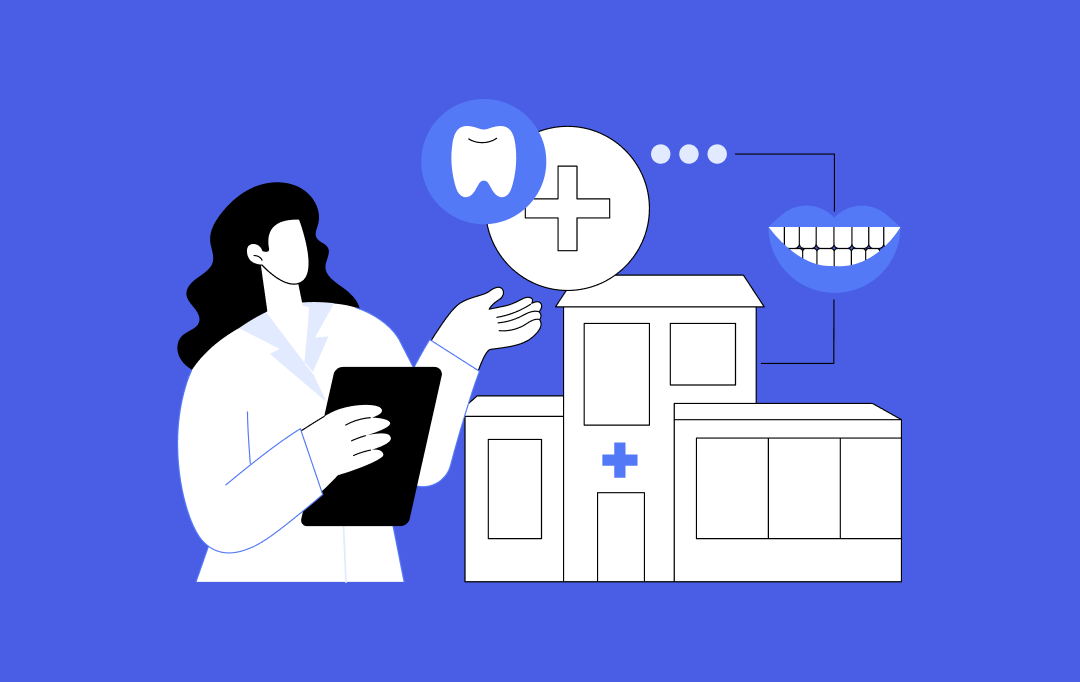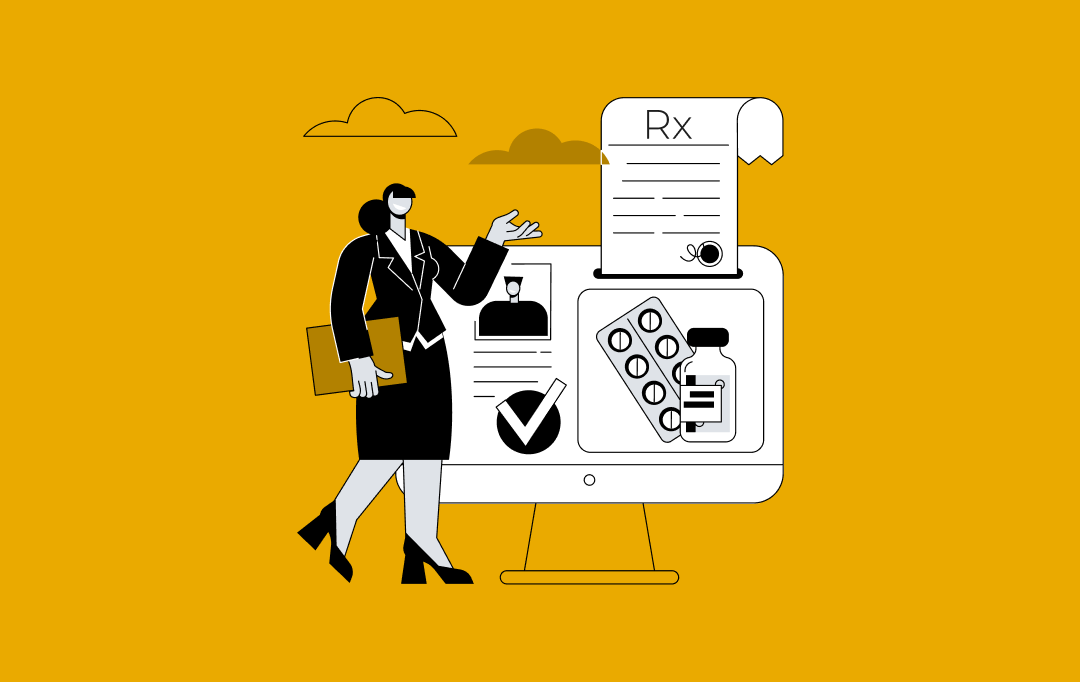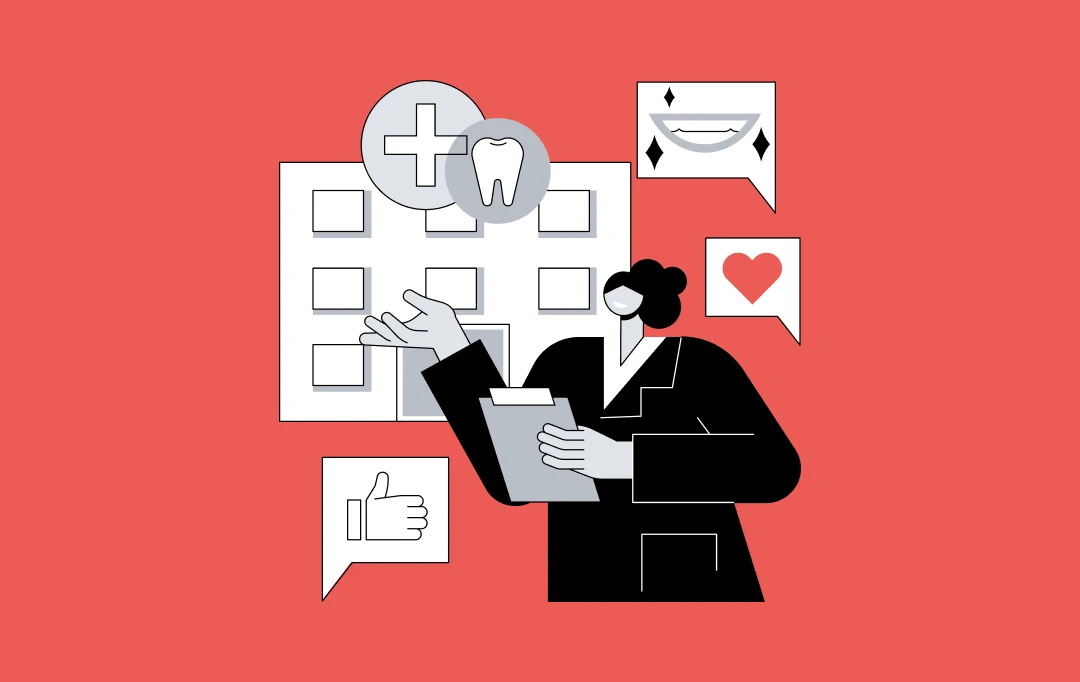- Health Insurance Apps Market Overview
- Why is Health Insurance App Development in High Demand?
- What are the Benefits of Health Insurance App Development
- Convenience and Accessibility
- Streamlined Communication
- Real-Time Information
- Single Point of Data Storage
- Minimized Paperwork
- Advanced Navigation System
- Enhanced Productivity
- Revenue Maximization
- Types of Medical Insurance Applications
- Health Insurance App for Patients
- Health Insurance App for Healthcare Providers
- Health Insurance App for Insurance Companies
- How Much Does It Cost to Develop a Health Insurance App?
- How to Build a Health Insurance Mobile App?
- Health Insurance App Features
- User Profile
- Policy Information
- Claims Management
- Payment Management
- Media Sharing
- Effective Communication
- In-App Payment Integration
- Push Notifications
- Early Diagnosis
- Multi-Factor Authentication
- Real-World Examples of Healthcare Insurance Apps
- Aetna
- myCigna
- MyIH
- Oscar
- Appinventiv: Your Trusted Health Insurance App Development Company
- FAQs
In the recent outbreak of the COVID-19 pandemic, the world has witnessed an unprecedented shift in the dynamics of healthcare. The pandemic has acted as a catalyst for digital transformation in healthcare across all fields, including medical records, drug discovery, pharmacy and hospital management, remote billing, equipment, telehealth, and medical insurance. This transformation was much awaited by patients, doctors, and health insurance companies, simplifying and revolutionizing the way hospitals and insurance providers interact with patients.
As a result, insurance companies are increasingly considering health insurance app development to redefine the way patients navigate the complex world of health insurance.
Oscar, a US-based health insurance company, is the first in the list to build a health insurance app. Aetna, UnitedHealth, Humana, Cigna, and Anthem are other big names in the industry that rely on apps to cater to the diverse needs of their growing user base.
But do you know the best practices to build a health insurance mobile app for your business? Well, in this blog, we will cover all the aspects of health insurance app development, including market overview, features, process, and cost considerations.
Health Insurance Apps Market Overview
Before we get into the intricacies of medical insurance app development, we must gain in-depth insight into market statistics to know why healthcare insurance software is essential. Analyzing these statistics will inform you of the vast market and potential in the sector.
- The US has the world’s largest health insurance market, which is poised to grow at a CAGR of 8.1% by 2024.
- Oscar, the first enterprise to create a health insurance app, has over 1 million active members.
- Health insurance is the largest contributor to the unprecedented growth of the medical insurance industry.
- The total revenue generated by the global healthcare insurance market reached a value of $2.1 trillion in 2021 and is estimated to grow to $3.62 trillion by 2028 at a CAGR of 9.5%.

Why is Health Insurance App Development in High Demand?
Mobile health insurance apps are in high demand for a variety of reasons, reflecting the evolving landscape of healthcare and the rising expectations of modern consumers. According to a report, over 30% of patients who experience a longer wait time than expected leave before meeting their healthcare professional, and 20% of patients move to some other doctors in such a case.
Just imagine, in today’s fast-paced world, when people can’t afford to wait for their doctors, how would they wait for a health insurance company that takes days or months to resolve their query and provide them with their claim amount? Unsurprisingly, the potential buyers will switch to the next option that caters to their needs faster and more conveniently. Obviously, you don’t want it to happen to you.
So, to avoid facing such distressing situations, you must provide your audience with a more convenient and advanced solution that can cater to their demands painlessly. Health insurance web app development can make this possible by streamlining your business process and minimizing your users’ wait time.
What are the Benefits of Health Insurance App Development
With people becoming more aware of a healthy lifestyle and medical insurance, health insurance app development has become more important than ever, offering many benefits to the masses. Here are some of the most remarkable health insurance app benefits:

Convenience and Accessibility
Mobile health insurance apps put essential healthcare and insurance information at users’ fingertips. This level of accessibility means that users can quickly check their coverage, compare available insurance plans, find in-network providers, and access their insurance information whenever and wherever they need it.
Streamlined Communication
These apps provide an efficient channel for communication between users, insurance providers, and healthcare facilities. Users can easily send and receive messages, claims, and documentation through the app, reducing the need for phone calls and physical paperwork.
Real-Time Information
Mobile apps provide real-time updates on policy changes, claim statuses, and other insurance-related information. By having easy access to such updates, users can stay informed about their coverage and make informed decisions about their healthcare options.
Single Point of Data Storage
Health insurance apps provide users with a single synchronized data storage system that can be seamlessly integrated with EHR, EMR, third-party platforms, and the internal systems of healthcare providers. Moreover, mobile apps prioritize data security, ensuring that users’ sensitive health information is securely stored on the cloud, making them feel more secure and comfortable sharing their personal information with anyone they want and avoiding mishaps.
Minimized Paperwork
With health insurance apps, users need not stress printing out claim records and other essential documents. With the easy accessibility of mHealth and insurance apps, users can safely store and access all the required information anywhere, anytime.
Advanced Navigation System
In the vast realm of healthcare professionals, patients often have to spend too much time choosing the best doctors and finding the best services for their needs. A health insurance app provides users with an advanced navigation system, helping them find suitable doctors, schedule appointments, order prescription refills, and access telemedicine services directly through the app.
Enhanced Productivity
According to a study, 78% of businesses believe workflow automation helps them boost their overall productivity. It also applies to the healthcare and insurance industry. And that’s not it. A mobile health insurance app not only helps automate processes like generating reports and sharing policy renewal reminders but also reduces the risk of human errors, such as the transfer of incorrect medical information, lost documents, etc.
Revenue Maximization
One of the most important benefits of health insurance app development is that it helps automate processes and reduces the need for physical documents, leading to reduced administrative costs and better customer service. Better service leads to an increase in the user base and helps you gain more profits in a shorter span of time.
Types of Medical Insurance Applications
Health insurance apps typically connect with three kinds of users: healthcare providers, insurance companies, and patients. Every user type has its own problems and preferences. Based on the diverse nature of users’ requirements, a single type of app can’t serve as a one-size-fits-all solution. Hence, there are three types of health insurance mobile apps:
Health Insurance App for Patients
A health insurance app for patients serves as an online filing system to organize patients’ health information, medical records, and other essential details about health insurance advantages, claims, etc.
Health Insurance App for Healthcare Providers
Health insurance apps for medical professionals are specifically developed using emerging technologies like AI, blockchain, etc. These types of apps help organizations automate their daily tasks associated with verifying the validity of the documents, managing liability issues, determining whether a patient is eligible for direct medical billing, and more.
Health Insurance App for Insurance Companies
This type of medical app forces health insurance companies to acquire the adaptability and elasticity needed to guarantee the satisfaction of their users and provide essential support as required.
How Much Does It Cost to Develop a Health Insurance App?
There is no one-size-fits-all formula to answer how much it costs to create a health insurance app. Health insurance app development costs can significantly vary based on various factors, including the app’s complexity, features, platform, location of health insurance app development company, app types, and regulatory requirements.

To give you a rough estimate, the cost to build a basic health insurance app with standard features can range between $50,000 to $100,000. An advanced and feature-rich app will cost more, i.e., around $200,000 or more, depending on the complexity and scale of the project. Remember, the more advanced and feature-rich your app is, the higher it will cost you.
Here’s a breakdown of the health insurance app development cost and timeline based on its complexity:
| App Complexity | Average Duration | Cost Estimates |
|---|---|---|
| Simple App | 3-6 months | $50,000-$100,000 |
| Medium Complex App | 6-9 months | $100,000-$150,000 |
| Highly Complex App | 10+ months | $150,000-$300,000 |
For a more in-depth evaluation, here is a visual presentation of the price range based on the location of the healthcare or Fintech Software Development Services provider.

To gain a comprehensive understanding of the factors that contribute to the overall health insurance app development cost, please check our guide on Mobile App Development Cost in 2023.
How to Build a Health Insurance Mobile App?
Health insurance app development is a complex and challenging process involving several steps and considerations. Therefore, before you embark on the journey to create a health insurance app, it is essential to understand the various components involved in the process. A clear comprehension of the essential components will provide a clear roadmap for developing the health insurance app.
Typically, any type of mobile application development goes through the same phases, and on-demand insurance app development is no different. Health insurance app development process goes through the steps of meticulous planning, UI/UX design, security and compliance checks, backend development, feature implementation, secure payment integration, selection of the appropriate tech stack, MVP (Minimum Viable Product) creation, thorough testing, and an ongoing commitment to ensuring user satisfaction.

To gain a deeper understanding of the steps involved in the healthcare app development process, feel free to check our comprehensive blog titled “The Ultimate Business Guide to Healthcare Application Development in 2023.”
This blog offers a step-by-step breakdown of the development journey, cost considerations, the advantages of creating a healthcare app, and the fundamental features that ensure the seamless performance and success of your app.
Health Insurance App Features
To ensure the effectiveness and success of your health insurance app, it must incorporate a range of essential features. Mentioned below is a list of key features that a comprehensive health insurance app should have:

User Profile
It is the first and foremost feature, allowing users to register and manage their profiles using their emails, phone numbers, policy details, and other essential information. This feature helps provide a personalized user experience.
Policy Information
Displaying detailed policy information, including coverage details, deductibles, premiums, and effective dates, is another crucial health insurance app feature. It also allows users to compare several insurance plans and make informed decisions based on their specific needs.
Claims Management
It is one of the most important health insurance app features, allowing users to submit, track, and manage insurance claims efficiently. Users feel at ease to upload supporting documents, file claims, and receive status updates directly from their mobile devices.
Payment Management
Your insurance app must be adaptable in terms of its payment options. Make sure your app allows users to sign up quickly, automate the invoice processing, and provide configurable commission and incentive calculations.
Media Sharing
In any healthcare insurance app, the media sharing feature holds tremendous significance. It allows patients to seamlessly share their medication documents or medical reports with doctors for review.
Effective Communication
Enabling effective communication is the life and soul of building the credibility of your app. This feature enables users to securely connect with their insurers, healthcare providers, and customer support for quick responses to their queries. Make sure your app supports all the primary communication types: video calls, voice calls, and chat.
In-App Payment Integration
Failure to make timely premium payments may result in insured individuals losing coverage. To help your users face such scenarios, integrate a payment gateway feature in your app, enabling users to settle their premiums conveniently. An in-app payment gateway offers a hassle-free means to initiate payments for life insurance services while facilitating swift bill settlement following medical appointments.
Oscar has an automatic payment feature. The app securely deducts premiums every month, alleviating concerns about missed payments.

Push Notifications
Important updates and reminders reach users promptly through push notifications. Users stay informed about policy changes, claim updates, and critical healthcare alerts, ensuring they never miss crucial information.
Early Diagnosis
It is one of the highly sought-after health insurance app features, helping insurance companies gain a competitive edge. When considering its implementation, think through all possible ways for users to access medical guidance. In scenarios where immediate doctor visits, calls, or chats are not feasible, having an AI-powered chatbot or questionnaire feature can be a great help. This feature provides users with an initial diagnosis and then refers them to the right doctor.
Multi-Factor Authentication
It is a vital security feature of a healthcare insurance app, enhancing its app’s security, protecting users’ privacy, and adhering to HIPAA compliance. In the healthcare domain, protecting patients’ sensitive medical information against unauthorized access is paramount. Multi factor authentication guarantees the secure accessibility of the app. It requires users to provide extra information, such as a one-time code or a biometric scan, along with their username and password, ensuring that only authorized persons can access the app.
You may like reading: How to Build a Financial App with Proactive Security Measures?
Real-World Examples of Healthcare Insurance Apps
Interested in the idea of building health insurance app development solutions? Well, before you move ahead to breathe life into your idea, you must evaluate your competitors’ apps and analyze how well they are performing and what are their pain points. It will help you build a great app for your business. Here are examples of some well-known health insurance apps:

Aetna
Aetna, developed by Aetna Life Insurance Company, is one of the most popular health insurance applications. It helps manage users easily find a doctor or healthcare facility, manage claims, get medical details, and do a variety of other healthcare-related operations and communication.

myCigna
myCigna is another popular health insurance app that allows users to file claims, track their medical expenses, and see claims of their family members. With more than 1M+ downloads, the app allows its users to easily access their health information.

MyIH
MyIH is a free health insurance app that provides individual and family health insurance services while connecting users to a network of doctors and facilities.

Oscar
Oscar Health is the first health insurance company with a mobile app. The app allows its users to manage their insurance policies, track their claims, find healthcare providers, and access various other services related to their health insurance.

Appinventiv: Your Trusted Health Insurance App Development Company
We believe this comprehensive blog on health insurance app development would have given you a clear understanding of all the essential elements involved in bringing your idea to life.
So, if you need a trusted tech partner to develop a health insurance app, count on our award-winning healthcare app development services. From conceptualization to design and development, we provide end-to-end services to ensure the seamless deployment and maintenance of your solutions.

Still unsure about our competence and credibility to build a health insurance mobile app? Seek inspiration from our healthcare and finance-related projects – Soniphi, YouComm, Health-e-People, and Mudra. For a more in-depth analysis of our expertise in delivering quality-driven projects, feel free to check our portfolio.
So, if you want to receive all the advantages that we have delivered to our global clients, contact us for your health insurance app development project now.
FAQs
Q. How to create a health insurance app?
A. Health insurance app development is a complex and multi-faceted process involving various steps and considerations. Some of the most common steps of a health insurance app development process are:
- Choose the App Type
- Enlist the Core Features
- Craft UI/UX Design.
- Decide the Development Method
- Finalize the Tech Stack
- Check for Healthcare Compliances
- Develop an MVP
- Testing and Iteration
- Release the Final Version
Q. What are the challenges when considering medical insurance app development?
A. Despite the many advantages health insurance app development brings to your business and patients alike, it poses some significant challenges. Here are some of the most common challenges you often encounter when developing a health insurance app.
- The healthcare and insurance sectors are subject to stringent regulatory compliances, such as HIPPA, GDPR, etc. Therefore, ensuring that the app complies with the industry laws and regulations is essential.
- Medical insurance apps handle the sensitive health information of users. Protecting this data from breaches and ensuring robust data security is a significant challenge.
- Ensuring seamless data exchange and interoperability with various healthcare systems, such as electronic health records or pharmacy databases, can be technically challenging.
- Integrating features like telemedicine, cost estimation, in-app payment, claims management, etc., and balancing user-friendliness can also be challenging.
Q. How long does it take to build a health insurance app?
A. The time it takes to create a health insurance app varies significantly based on its complexity, features, and other essential components. A basic app with limited features takes around 3 to 6 months, while a more complex app with advanced features takes a year or more to complete development. Discuss your project idea with a trusted health insurance app development services provider to get a quote for the development duration.



How Much Does it Cost to Build a Custom Dental Practice Management Software?
In recent years, dental practices have shifted away from manual, paper-based systems and embraced advanced software solutions. This change boosts efficiency, enhances patient experiences, and improves data management. While dealing with patient data, dentistry has ditched old-school methods like physical charts, appointment books, and manual billing. They’ve leveled up with a high-tech data handling &…

EMR Integration in Healthcare Systems - Benefits, Features, Process, Costs
EMR integration, having proved its worth in the healthcare space with improved workflows, better patient engagements, and lowered operational costs has built itself a projected market share of USD 20.7 billion. Eventhough a range of hospitals swear upon the benefits EMR system integration has garnered them, the adoption level digital healthcare industry anticipated has still…











